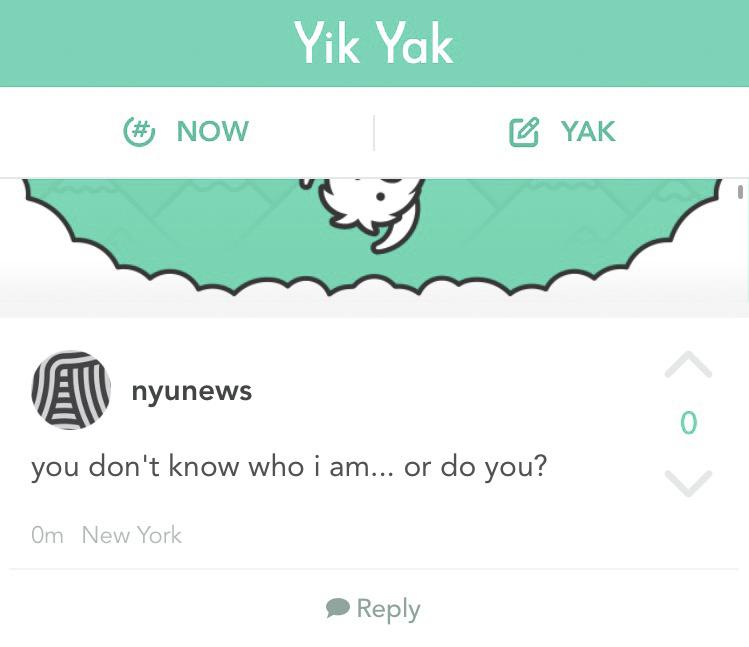Yik Yak Could Lose Anonymity
YikYak allows users to post anonymous “Yaks” that others nearby can view on the app, but Professor Keith Ross found a way to strip away the anonymity.
October 24, 2016
Students could not stop yiking and yaking on the social media app Yik Yak when it first launched in 2013. This medium thrives off anonymity, but a recent study by Tandon professor Keith Ross could possibly strip the virtual mask off its users.
Ross worked with students from NYU Shanghai and East China Normal University on a study of the privacy issues facing Yik Yak. Users post anonymous yaks and can read any yak within a mile radius of their locations. This is a location-based app, and it became popular on college campuses due to the relevancy and anonymity of community-specific conversations.
East China Normal University Ph.D student Minhui Xue was the paper’s lead researcher and said that he was interested in the topic to inform the public — not to expose the controversial posts on Yik Yak.
“Even in the anonymous social network, people can still localize the posts you just sent,” Xue said. “We have seen so many these cases released in the press in U.S. This motivates me to conduct the research on Internet privacy: de-anonymizing anonymous social network users.”
Their research revealed a way students can pinpoint general locations of the origin of the post, thus leading to the identity of the author: one can stand in a particular spot, see if a message is within their radius and then keep moving to determine where the message can and cannot be seen.
“So basically what happens is that for a particular message at a particular location, the message will come up, but a location maybe 500 meters to the north, it won’t come up,” Ross said. “And maybe 300 meters to the south, it still comes up. And maybe 350 meters to the southwest it doesn’t come up. And we collect all that information, we can make a prediction from where the message was actually sent.”
Through this logic, the team created a program to determine location information much quicker. The researchers conducted the study while in Shanghai, but tested their tools on the University of California, Santa Cruz campus through a fake GPS instrument — showing that anyone in the world could potentially track yakers’ locations.
“We’re not actually doing that physically or manually. There’s a program that runs that does all this for us: it changes the GPS location, runs Yik Yak, collects the data,” Ross said. “But to create a pool like that, it does require some computer science skill.”
He said that while it takes a couple steps to reach this information and that most people could not create such technologically advanced conclusions, any computer science undergraduate student would be able to develop this tool. After discovering this information, Ross said that they contacted Yik Yak about this possible flaw in their app.
“We informed Yik Yak about this, and they were quite concerned and so they’re currently working on ways to eliminate this problem,” Ross said. “I’ve been in contact with their CTO and they’re definitely quite concerned about this.”
A version of this article appeared in Monday, Oct. 24 print edition. Email Faith Gates at [email protected]



























































































































































